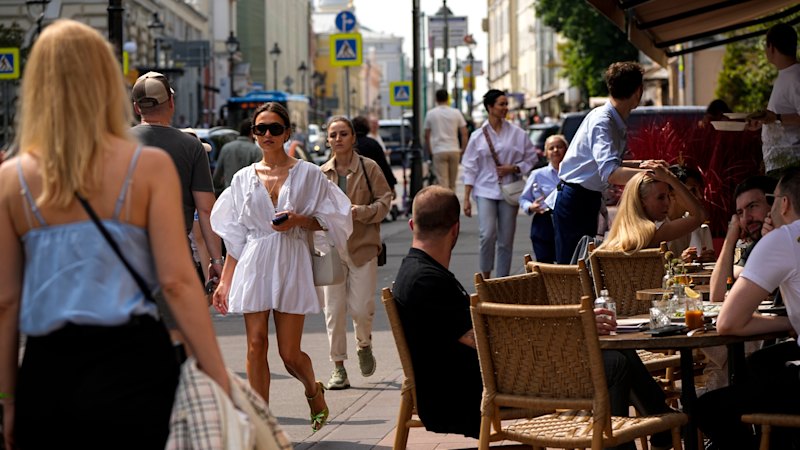
The ongoing conflict in Ukraine has unexpectedly reshaped Russia’s socioeconomic landscape, giving rise to a new middle class, particularly in industrial regions. This phenomenon, dubbed “deathonomics,” highlights the paradox wherein some Russians, notably in impoverished areas, have found financial stability through the war effort.
In Volgograd, a city historically marked by the devastating Battle of Stalingrad, government advertisements on Vkontakte, Russia’s social media platform, are actively promoting enlistment into the military. These ads invite men aged 18 to 63, including those with disabilities or criminal records, to join the fight for Ukraine. The incentive is alluring: a soldier can earn up to 8 million rubles (approximately $154,210) in their first year of service, significantly exceeding the region’s average wage of 712,883 rubles (about $13,740).
Military families are benefiting from substantial financial support while their loved ones serve on the front lines. This includes sign-on bonuses, additional payments for dependents, and perks such as discounted mortgages and priority access to nurseries. As the war economy unfolds, many residents of Volgograd and similar regions have come to rely on these financial incentives, leading to a complex relationship with the ongoing conflict.
Economic Transformation in Russia’s Industrial Regions
Initially, the invasion of Ukraine in February 2022 prompted widespread predictions of economic collapse for Russia, given the severe international sanctions imposed. Contrary to these expectations, some regions have experienced economic revival, particularly those historically dependent on single industries like defense and manufacturing. According to Tatiana Orlova from Oxford Economics, the shift in economic focus towards military production has revitalized previously stagnant industrial facilities.
“Suddenly, these mothballed industrial facilities were hiring new workers, and new investment started flowing,” Orlova noted. Factories are now operating multiple shifts to meet the demand for military supplies, leading to significant wage increases in these sectors. For instance, wages for workers producing finished metal items surged by 78% from 2021 to 2024, while salaries in healthcare and oil industries grew at a much slower rate.
The war has inadvertently created well-paying jobs for unskilled workers in economically disadvantaged regions. Many of these workers, who previously faced unemployment or underemployment, are now gaining financial stability and social respect. As a result, there is a newfound appreciation for factory jobs, especially those linked to the military.
Social Implications and Concerns for the Future
Despite the financial benefits, the reality of war remains grim. The term “deathonomics,” coined by economist Vladislav Inozemtsev, captures the troubling irony of a system that rewards military service with financial incentives, often at the cost of lives. Families of soldiers killed in action can receive payouts up to 11 million rubles (approximately $212,181), which includes various government compensation packages.
While some families have found a path to improved living standards, the long-term implications of such rapid economic changes are concerning. As observed by Inozemtsev, returning soldiers may struggle to adapt back to civilian life and might deplete their newfound wealth quickly. “If 500,000 people return to regions with low wages, the potential for social disaster is significant,” he warned.
The ongoing conflict complicates any prospects for peace, as leaders like Volodymyr Zelensky express skepticism about Russia’s intentions. Recent diplomatic efforts between Donald Trump and Vladimir Putin have not yielded significant progress, leaving many in Russia’s new middle class apprehensive about the future.
As the war drags on, the dichotomy of prosperity and loss continues to unfold in Russia. For many in Volgograd and surrounding regions, the financial incentives provided by military service may be too compelling to forgo, even as the human cost rises. The challenge for Russia’s leadership will be to navigate this complex social landscape as the war effort continues to shape the nation’s future.






